"Auto-Bounce gives people their life back": Tom Salta's time-saving plugin automates the laborious process of bouncing stems and mixes in Logic
Video game composer Tom Salta got so tired of spending hours bouncing stems in Logic that he designed a plugin to do it for him
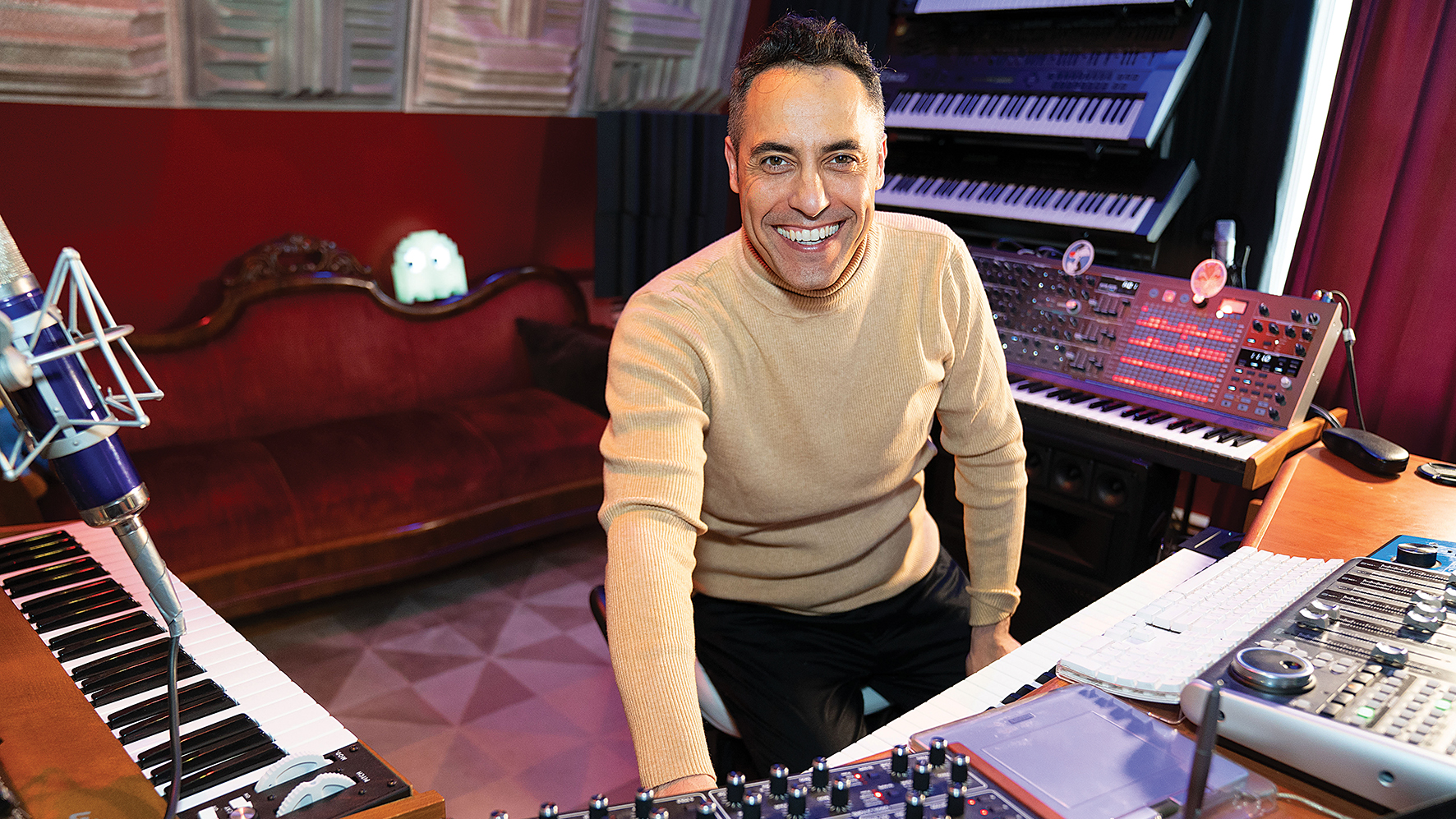
An acclaimed figure in the world of video game soundtracks, Tom Salta knows all too well the time-swallowing pain of bouncing numerous different versions of his mix for different purposes. Frustrated by the creative time this was taking away from him, Tom developed the new Logic-bespoke plugin, Auto-Bounce, to take the process off his hands.
We were keen to find out more about what motivated his leap from composer to plugin developer, as well as learning about a prestigious career as a video game soundtracking luminary. Also, we wondered whether Auto-Bounce might soon span across other DAWs…
Auto-Bounce sounds like it takes the stress out of stem bouncing. Firstly can you give us an overview of just what Auto-Bounce provides?
“Absolutely, Auto-Bounce is the only thing available that allows Logic users to fully automate the process of running stems, multi-tracks and mixes. Not only does it take the stress out of it, but you don’t even need to be there! It does something that human beings don’t need to do.
I was hoping this kind of thing would one day show up as a feature but it didn’t, so I decided to do it!
“One of the big missions with Auto-Bounce is to give people their life back. It’s really about giving us free time, and not having to sit in front of a screen to do mindless, repetitive tasks. That’s really what the mission was. As a Logic user, this is a dream come true. I was hoping this kind of thing would one day show up as a feature but it didn’t, so I decided to do it!”
So would you say Auto-Bounce is primarily a workflow speeder, or can it achieve things that you’d be unable to do manually?
“It is definitely something that speeds the process up, and it can do that process quicker than a human being can. It wasn’t even about that. It was about the scenario where a composer, a producer, or a songwriter has spent all day in the studio and is tired. Then, they have to be late to dinner because they have to sit for another hour running stems. Going one at a time, naming it, hitting Bounce. Human beings shouldn’t have to do that. Auto-Bounce does it better and faster than a human being can do.”
Want all the hottest music and gear news, reviews, deals, features and more, direct to your inbox? Sign up here.
How long has Auto-Bounce been in development, and what first spurred you to make it?
“It’s been two years since we started to work on it. It was probably at least two or three years prior to that where I was proactively talking to companies about this. I didn’t do this because I wanted to get into software development. I’m a composer – that’s my thing. I did it because there was a great need. I had been talking with Apple about this, and Steinberg too prior to them automating stem bouncing themselves. Finally, two years ago I decided to just do it myself and make it happen. There’s countless Logic users around the world and I’m tired of it. I don’t want to sit here anymore doing this stuff. It’s not necessary. ”
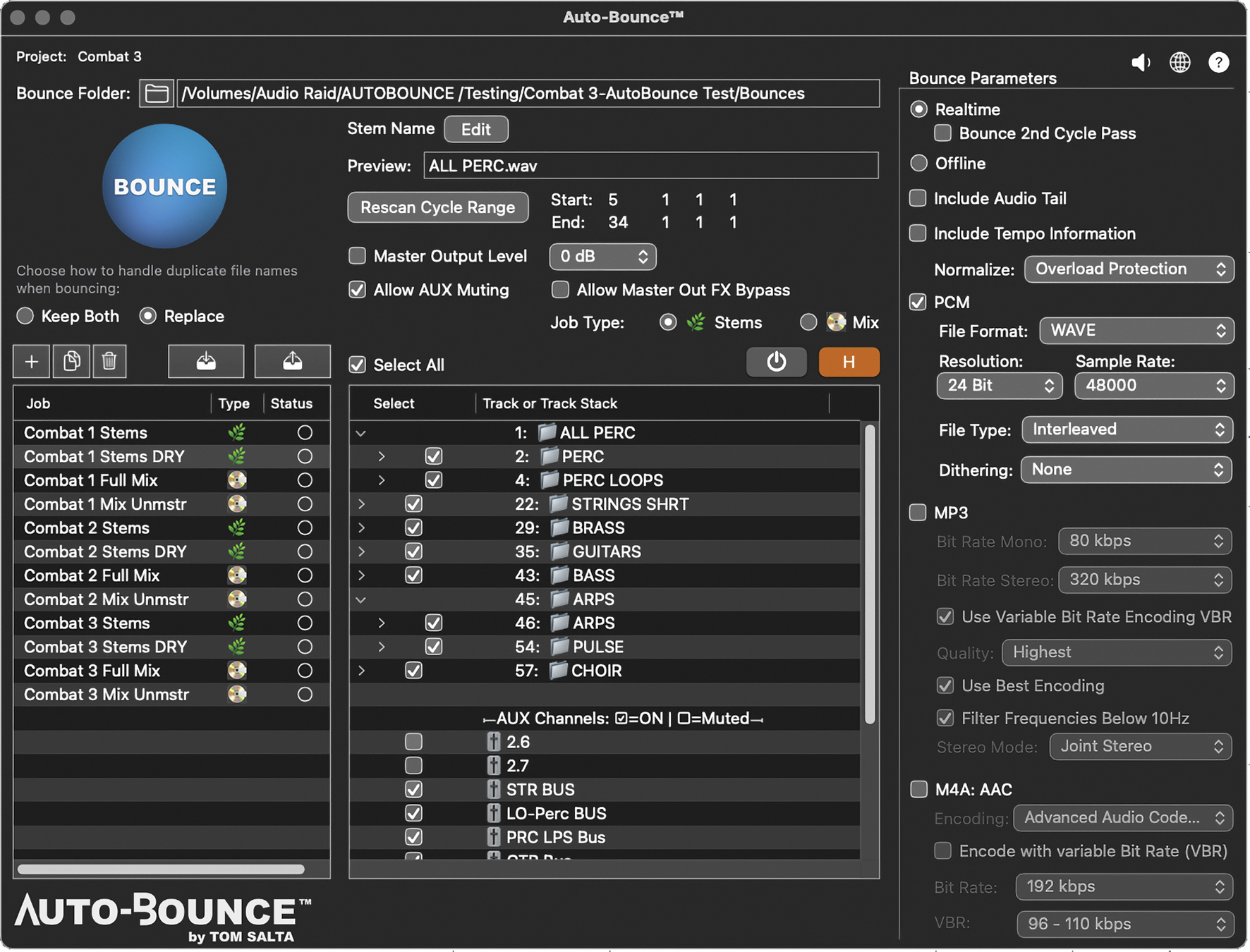
Could Auto-Bounce also be used with other DAWs like Ableton Live or Cubase, or is it exclusively Logic at this stage?
“At this stage it’s exclusively Logic. We haven’t announced any plans to port it over to other platforms but we started where there was the greatest need and where I have the most familiarity. I’ve been using Logic since 1990, when it was called ‘Notator’ and was on an Atari ST. I’m a hardcore, die-hard Logic user, and that’s where the need was. But never say never on versions for other DAWs.”
While we’ve got you, we must ask you about your career. Going back to the beginning, when did you decide that a career path in music was for you?
“Back in the dark ages. I’d say I made the transition into a professional music career in about 1990. Right out of high school. My original intent was to be a record producer, in the vein of Mutt Lange, Quincy Jones and Trevor Horn. They were my heroes and idols. I started professionally going on tour with the biggest R&B music star in the world at that time, Bobby Brown. That led me to tour with other acts like Mary J Blige and early ’90s R&B artists, people like TLC.”
Here I am today, still in love with video game music. But I’ve never lost my roots and my love of electronic music
“Eventually I came back and wanted to pursue my career as a producer so I got in the studio and stayed there. Throughout the ’90s, I worked on a myriad of different kinds of projects. From dance remixes, to working with people like Whitney Houston and Peter Gabriel. A nice array of artists. I produced loads of different genres. Then, 2001 happened. A lot of changes happened that year. One of the main ones was the introduction of high-speed internet. Along with that came music piracy. The whole Napster and Limewire effect had big ripples. Around that same time I began to realise that my aspiring career to be a record producer might be affected.”
So what then led you into the realm of video game composing?
“Right when the rollercoaster started going over the hill I got this sense that it was time to switch gear. That’s when I simultaneously had the epiphany of writing music for video games. I’d loved both since the 1970s, so combining the two loves would be a great profession. I entered that industry as an artist, rather than as a wannabe composer. The artist name I came up with was Atlas Plug, and I created this brand-new, cutting edge, electronica big-beat album [released in 2003].
“Shortly after that, it started getting placements in video games. The music started appearing in games like Crackdown and Project Gotham Racing and Need For Speed. Then I took off the mask and got myself an agent. I then started pitching to score video games. That led me to score Need For Speed: Underground and Ghost Recon: Advanced Warfighter, and then ten years later I was scoring the Halo series and here I am today, still in love with video game music. I’ve never lost my roots and my love of electronic music, though.”
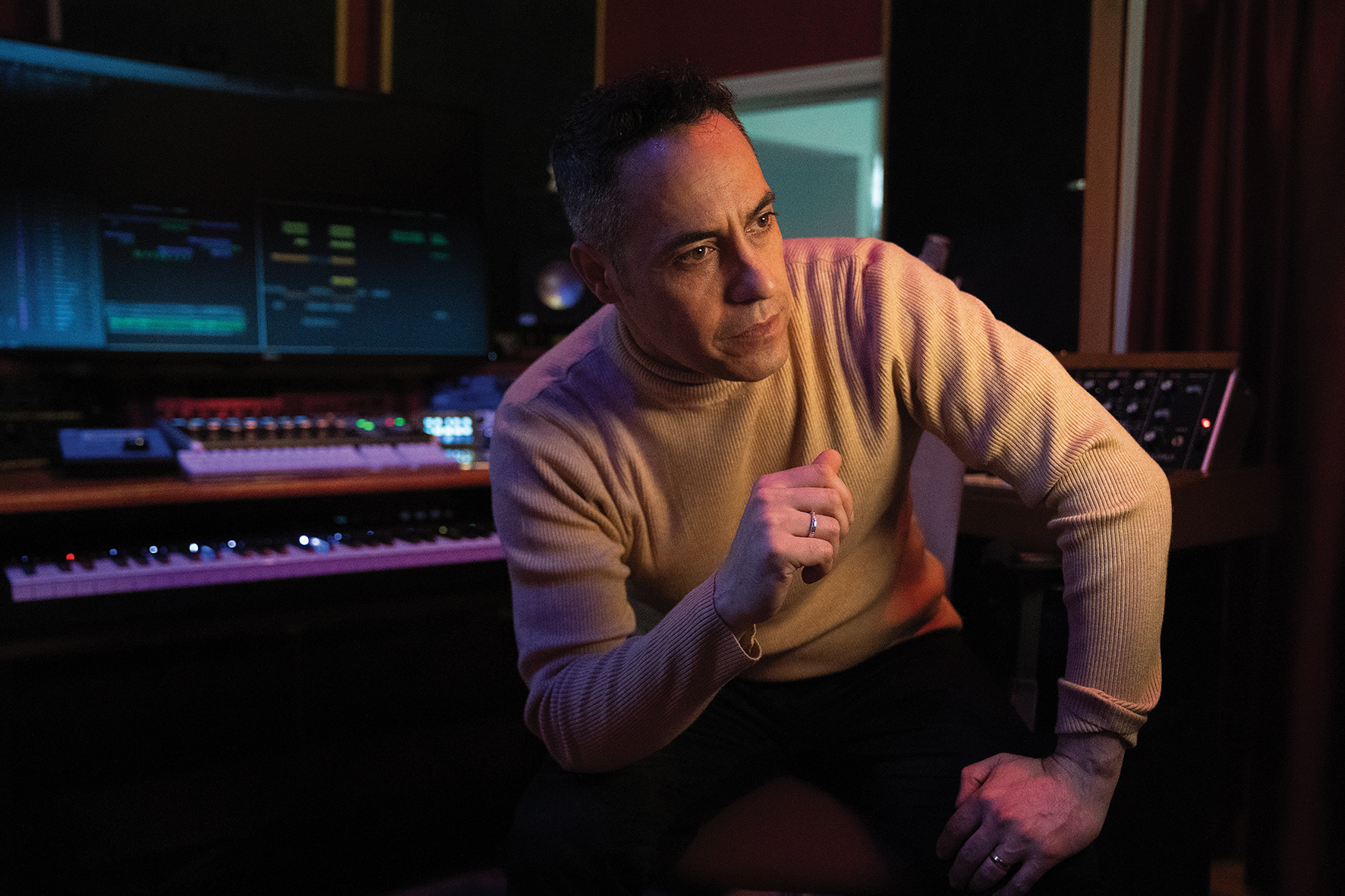
So is Atlas Plug a dormant creative outlet for you now, or might it resurface in the future?
“It’s one of those things that’s constantly been on my mind. I probably set a world record for an artist that had a record that did really well – every song of it was licensed and is still getting licensed today. That says a lot for an electronica record. So, you’d think I would follow up on it but my focus has really been on what’s next, what are my passions and how much time have I got. But, I’m not closing that door completely. I’d love to come back and slip the mask back on once again!”
Your recent Deathloop soundtrack seems to have been universally loved. How was the process of making that soundtrack and reflecting that continually repeating game world?
“That was a really wonderful project to work on. I finished that soundtrack nearly two years ago now. It was a really interesting process. Games have this notorious issue of dealing with monotony and dealing with repetition. It’s music that tends to be heard for hours and hours, unlike a movie which is just a two-hour experience and then you’re done.
“With video games, you’re often dealing with 40 to 100 hours. Throw into that the idea that the game itself is based on repetition, it’s based on living the same day over-and-over. If there was any danger of repetition it would be in a game like this. Fortunately we were able to handle that and it became this experience that a lot of people really loved. They enjoyed listening to it over and over.
“The other thing that made Deathloop very challenging and unique in a way that I loved was that it was an unusual premise. Not only story-wise, but musically. I’ll be honest, the late ’60s is not really my vibe. Most of the late ’60s is not known for music that is aggressive and dark and cool. It’s kind of like flower-child and free-love.
“Fortunately there was a happy ending to the story, I tried to turn it into something that was a really enjoyable experience by kind of exploring instruments from that time-frame, but approaching them in ways that sounded like the equivalent of someone from 2020 opening a room with these things, then scoring it today. I wanted to do it in a way that had a modern sensibility.”
How has your career changed over the last few decades, and how has technology changed the way you write and compose?
“Faster for sure, and the biggest paradigm shift is definitely the studio-in-a-box world in which we now live. The freedom to do what you want. There’s gear that I coveted. I had posters of Neve 1073 consoles and Synclaviers or CS-80s. Now with VIs, I have all of it but virtual. Most of the stuff I use every day is virtualised plugins of those things. I still try and remind myself of this and channel that inner child. Throwing all these amazing pieces of tech together and seeing what happens. Every score that I do, I look for ways to kind of go into the toy box and pull out certain gear. I try to set limitations for myself. ”
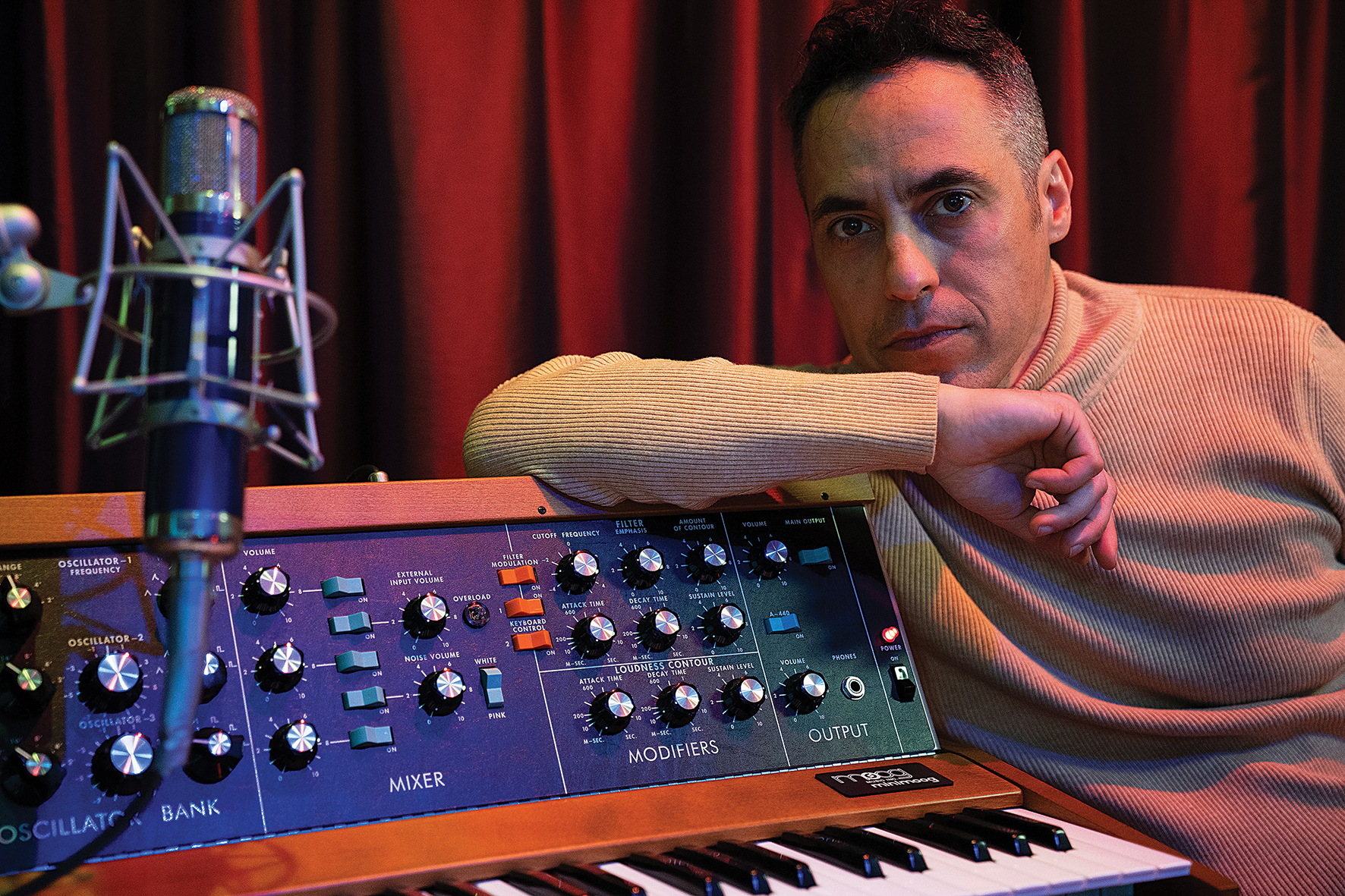
If you could choose one, which of your scores are you most proud of?
“Argh, that’s like asking which of my kids I’m most proud of. Well, it’s tough because we look back with rose-tinted glasses. That first one is a very special one, but you compare it against today. I’m not sure. To be honest, I’m really proud of my new score for Outlast Trials which nobody has heard yet. It is a terrifyingly scary score, that not only sounds scary but also melodically it’s creepy. Not just the tone and texture of it. Everything about it is really scary.”
Favourite software synth?
“If we’re talking about a desert island synth… For me, it’s probably Spectrasonics Omnisphere. I think a big reason is that it can do so many different things. It’s open-ended. Not only can it do real piano sounds and darn good string sounds, but I can get into the full spectrum of sound design and workstation stuff. It has endless libraries and is very approachable. It’s loaded with numerous crazy effects and you can load your own samples into it. It does it all.
“There are personalities to synths, but this one can go way beyond its core personality and become anything. So they’re the reasons why I’d gladly take Omnisphere.”
So, besides Logic and of course Auto-Bounce, what software would you say has saved you the most time when mixing and preparing mixes?
“Besides Auto-Bounce? Nothing! Off-line bouncing has saved me a lot of time to be fair. Next to that, nothing comes close to Auto-Bounce. There’s a difference between saving time versus giving me my life back – giving me time. That’s different and way more valuable. That’s what it’s all about. I’m a big advocate for mental health in the studio, and that’s one of the big reasons behind Auto-Bounce. We spend too much time alone in front of a screen, there’s no reason to spend any more time than you need to create. There’s also a financial saving, as some people pay to outsource their stem bouncing.”
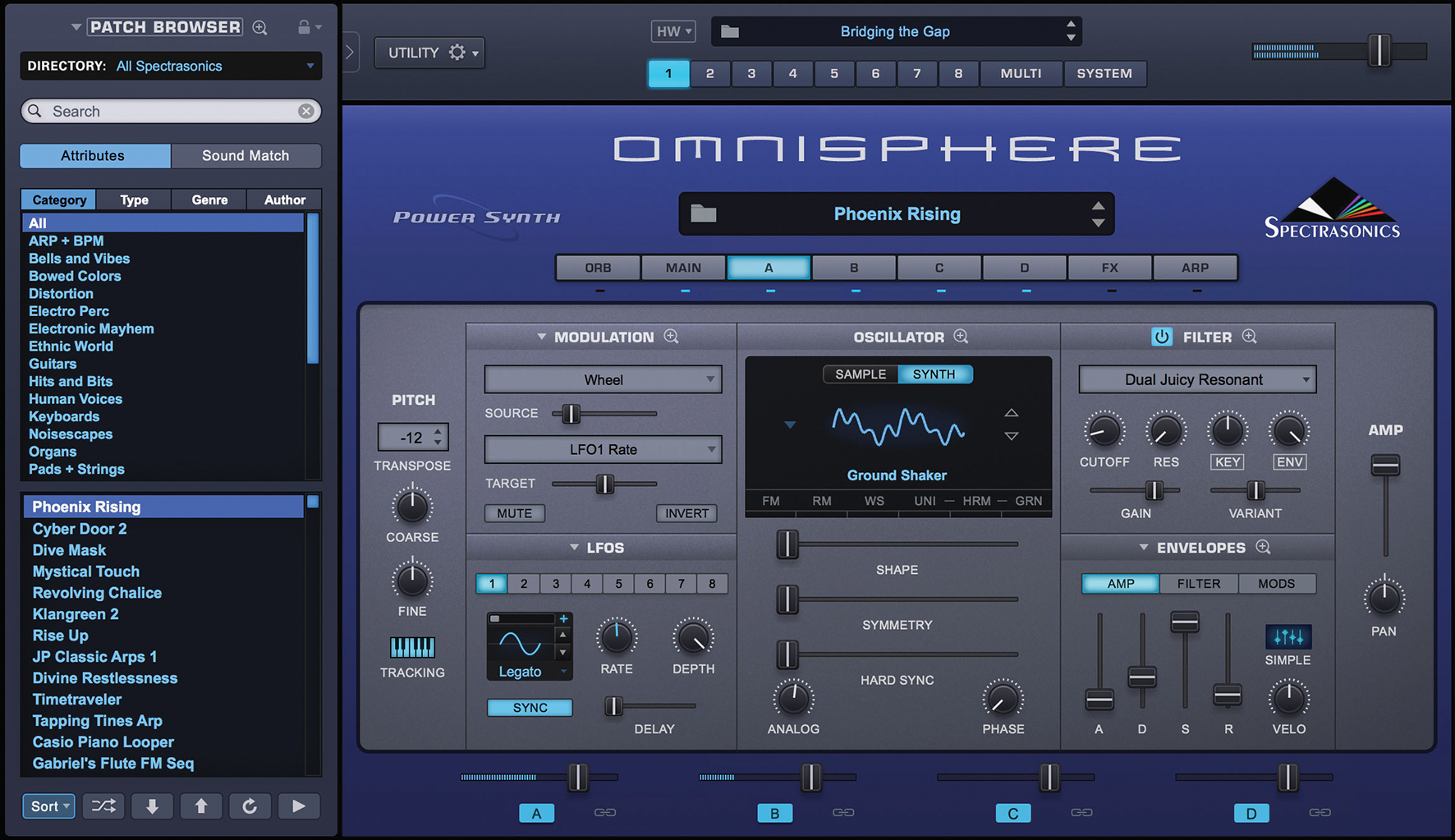
Might we see any more applications or plugins in the ‘By Tom Salta’ range?
“Yes, I do have a list, but I won’t tell you what they are. We’re going to go public with this soon, but we did quietly release it in January. I wanted to play it safe, and I wanted to make sure there was nothing I overlooked. Sure enough, I’ve ironed out some things and we’re adding some feature sets. People are thrilled about some of this stuff. It’s a game-changer.”
What advice would you give to anyone out there who might want to have a career like yours?
“I’d say be very, very honest with yourself and ask yourself why you want a career in this. If it’s about fame, money or glory, then don’t do it. If you’re fortunate enough to get those accolades then that grows old really fast. It will not give you the joy and satisfaction that you are meant to have in your life.
“When I was in high school they just opened this very small recording studio facility which nobody knew how to use. I basically owned that room. I love it. I did that because it excited me. It’s about what you love. I tried to use that as my guidance. Too many people climb the ladder of life only to get to the top and realise the ladder is on the wrong wall!”
So what’s next on your agenda, Tom?
“I’m deep into Outlast Trials scoring. I’m almost finished and we’re kind of wrapping it up. We might playtest a little more and try some things out.”



I'm Andy, the Music-Making Ed here at MusicRadar. My work explores both the inner-workings of how music is made, and frequently digs into the history and development of popular music.
Previously the editor of Computer Music, my career has included editing MusicTech magazine and website and writing about music-making and listening for titles such as NME, Classic Pop, Audio Media International, Guitar.com and Uncut.
When I'm not writing about music, I'm making it. I release tracks under the name ALP.